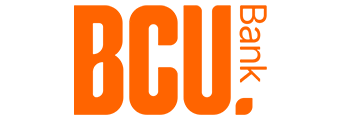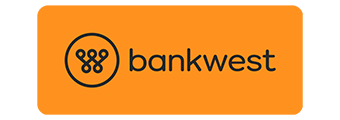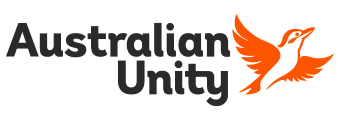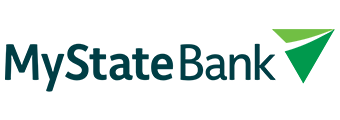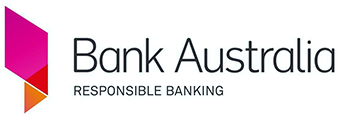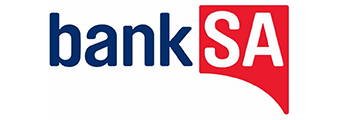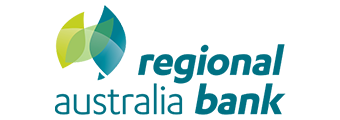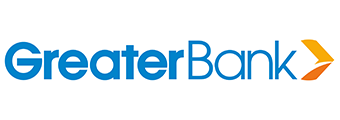Best High-Interest Savings Account Rates - July
An RBA rate cut in May meant many banks waved goodbye to savings account rates of 5% p.a. or better. It appears the halcyon days are over - for now - but there are still sharp rates to be found.
Below are the top rates according to InfoChoice's product database, but could change through July.
|
Brand Name |
Top % Rate Per Annum |
Conditions & Notes |
|---|---|---|
|
Rabobank Intro |
5.15% |
4-month variable introductory rate. Max balance $250k. |
|
Bankwest Easy Saver Intro |
5.15% |
4-month variable introductory rate. Max balance $250k. |
|
BOQ Future Saver |
5.10% |
Ages 14-35; deposit $1,000/month; 5 card transactions; max balance $50k. |
|
ING Savings Maximiser |
5.00% |
Deposit $1,000/month; 5 card transactions; grow balance; max balance $100k. |
|
MOVE Bank Growth Saver |
5.00% |
Deposit $200/month; no withdrawals; max balance $25k. |
What is a savings account?
A savings account is an account held at a bank or other deposit-taking financial institution – such as a credit union or building society – where you earn interest on the money you deposit. Savings accounts are not normally linked to a credit or debit card, so the money typically stays in the account for longer and accumulates quicker. Unlike term deposit accounts though, savings accounts are ‘at call’, which provides the money when you need it, but the interest rate is variable, meaning it can change.
What is a High Interest Savings account?
A High Interest Savings account is a savings account that offers a highly competitive interest rate. All high interest savings accounts have variable interest rates, which means your interest rate will fluctuate in response to changes to the Reserve Bank cash rate.
Some savings accounts have conditions that need to be met to achieve a higher interest rate. This may include minimum deposits, minimum account balance, or limited withdrawals, among others. Typically in these situations, if you do not meet these conditions, your account will revert back to earning a smaller interest rate.
What to look for when comparing high interest savings accounts
When choosing a savings account, there are several factors you should consider.
Interest rates
If you are looking for your money to grow as much as possible, the most important consideration is of course the interest rate. Many providers offer introductory ‘honeymoon’ rates where you earn at a higher rate for the first few months after your deposit, so it’s worth looking into this as well, although the rate usually reverts to something lower. Savings account rates are typically made up of base and bonus (or conditional) interest rates.
Conditions
As discussed, many savings accounts have criteria that need to be met to earn a higher interest rate. Typically these conditions are designed to make sure there is a significant amount of money deposited, so you may need to make minimum monthly deposits or maintain a balance above a certain amount. When comparing interest between accounts, be sure to also check what conditions need to be met in order to earn these rates.
Fees
In most cases, banks won’t charge monthly maintenance fees for savings accounts. However, there are many different types of fees that may be associated with opening accounts, including annual account fees and transaction fees. You should consider these fees when choosing an account as they could eat into your overall returns.
Accessibility
Some savings accounts make it very easy to access your money, while others limit this. For some people, since the primary purpose of a savings account is to leave your money to grow rather than constantly dipping in to it, an account that limits withdrawals or makes you grow the account balance is ideal as they essentially act as a forced way to save. Others may appreciate the flexibility that comes with always being able to access their money, however.
Linked accounts
If you decide you would like the option to sometimes use money in your savings account for transactions, you will need a linked account. Some banks make this easy by allowing you to link a savings account to your current transaction account using online banking. Some banks, in order to earn the top interest rate, usually require a linked transaction account.
Multiple savings accounts
Many banks allow you to hold multiple savings accounts at no cost. If you have several savings goals (simultaneously saving for a house and a holiday, for example), this can be a great way to compartmentalise your progress and have your eyes on the prize.
Things to consider with high-interest savings accounts
1. Deposit requirements
Many of the top savings account interest rates require a bit of legwork to get there. This could include depositing a certain amount per month – this is usually anywhere from $50 to $2,000. If you don’t you’ll likely receive the base interest rate, which is generally much lower than the total rate.
Some don’t stop you from withdrawing that amount straight away. However, if you’re a student or on a low income, you might find it difficult to move this money around.
2. Honeymoon periods
Many attractive interest rates are actually attached to intro or honeymoon accounts. These accounts offer an enticing interest rate that expires after a few months – usually three or four. The rate then reverts to what’s usually a much lower one. If you want an ongoing rate, double check to make sure it’s not an intro rate.
Pretty much all interest rates on savings accounts are variable however. Just because you’re on an ongoing rate doesn’t mean it’s guaranteed. Market movements could push your rate down – or up.
3. Deposit limits
Many of the highest earning savings accounts have deposit limits. For example, the top rate could apply to only the first $50,000 or $100,000. After that, another lower rate might apply.
If you have a lot of cash, it could be worthwhile picking a lower rate that applies to a higher balance, than a higher rate but a lower balance. Also keep in mind the $250,000 Government deposit guarantee. If you have more than this saved up in cash, it could be worth spreading it across different banks.
4. Other restrictions
To attain the highest interest rates, on some accounts you might be required to sign up to a linked transaction account and make a certain number of purchases. You might also need to grow the account balance i.e. no deposits then immediate withdrawals. You might also need to make zero withdrawals. These can be handy as a form of forced saving, but if you want flexibility, it does mean you might be punished with a lower rate if you don’t meet the criteria.
Other savings accounts might be restricted to age, for example under 18s, or under 35s. It’s no use signing up if you’re 50!
5. Savings interest is taxable
Any interest you earn from the savings account is taxable as regular income. This means you will need to declare it, or if you are using MyGov to do your tax return, it’s likely to be pre-filled.
If you earned $60,000 from your job, and $500 in savings interest for the year, you’d be taxed on a total of $60,500. This is provided you supplied your Tax File Number. While not mandatory, doing so means you’ll be taxed at the highest marginal rate through the year, and you’ll get the balance after the taxman processes your return. Do you really want to give the government a free loan for the financial year?
How can I get the most out of my high interest savings account?
1. Meet the requirements
Check if there’s a special rate that’s available to you provided you meet the requirements. These requirements could be as simple as not making any withdrawals for the month or making sure the minimum monthly amount is being deposited on time. You’ll want to make sure you’re able to hit these requirements, because the base interest rate can be much lower if you don’t.
2. Resist the urge to dip into the savings
It’s tempting to dip into your honeypot for an expense here or there, but it can add up over time. Some high interest savings accounts’ restrictions essentially make it punishing to dip into your savings.
This is why having different sub-accounts with buckets for different goals can be handy. That way you can keep your eye on the prize – house deposit, car, wedding or holiday – and resist the urge to use your savings on a night out you’ll forget in a week’s time.
3. Contribute to it regularly
If you have any money sitting in an account that isn’t needed in the near future, put it in to a savings account to help boost the interest you will earn. The more you have, the more interest you will earn because your interest is calculated as a percentage of your account balance.
Depositing regularly – such as when your pay comes in – can also yield better returns because it compounds. This means your interest earns interest. Even if it’s $20 or $50, it’s better than nothing.
4. Supply your Tax File Number (TFN)
While not mandatory, not supplying your TFN means your savings interest will be taxed at the highest marginal rate. This essentially means the government keeps that money until you do your tax return.
What are the advantages of a savings account?
Low risk
When it comes to mitigating risk when investing, savings accounts tend to be as good as they come. Your investment can only gain value unlike shares or property, and you can also usually withdraw and deposit money freely.
Money back guarantee
All banks with an ADI – banking license – in Australia are protected by a government guarantee. Even in the very unlikely event the institution goes under, your deposit balance is protected up to $250,000. If you have more than this amount, it could be worthwhile spreading it across different banks.
Easy to open and close
Savings accounts, particularly online, are usually very simple to open. The bank or institution may only need a few basic personal details, like your tax file number. They can be set up within minutes, and with the New Payments Platform and Osko, funds can be transferred in seconds.
Accessible funds
Whilst special conditions may apply to some accounts, you can usually freely withdraw and add money to a savings account without affecting the interest rate. This is more convenient than a term deposit account, for example, where you deposit an agreed amount for a set period of time and cannot access or add to it until the time is up.
What are the disadvantages?
Conditional interest rate
Savings accounts usually have bonus conditions you must meet in order to earn a higher interest rate, like minimum monthly deposits or a minimum account balance. If these conditions are not met, your account may revert to a lower interest rate.
No debit/credit card attached
By definition, savings accounts are not associated with a credit or debit card, which can be inconvenient if you need to withdraw cash from an ATM. On the other hand, many savings accounts are linked to transaction accounts that do come with a debit card.
Variable rates
Nearly all savings account rates in Australia are variable, meaning they can ebb and flow with the markets. This means your interest rate can go up or down from month to month. This is unlike a term deposit where the rate is locked-in for that period.
How popular are savings accounts?
Our State of Aussies' Savings research report revealed savings accounts are the single most popular way to save money across all demographics. They were the most popular for 57.4% of the population, with the next most popular being an offset account.
For the youngest generation surveyed - Gen Z, 1997-onwards - 79.3% considered a savings account to be their primary savings vehicle.
Despite their popularity, one-in-six respondents had less than $1,000 in savings. When extrapolated across the population this accounts for about 3.4 million Aussie adults. Nearly a third of Aussies (32.2%) don't have $5,000.
With savings accounts being popular, yet balances not being particularly healthy for a large number of Aussies, this makes it all the more important to compare your options and pick the right product yourself.
This includes not only the interest rate, but also the conditions you need to meet to attain that rate. For example, if you don't earn $2,000 a month but you need to deposit $2,000 to attain a good rate, then it probably makes more sense to choose a product with different conditions that you can realistically achieve.
How to open a high interest savings account
Applying for a savings account is an easy thing to do, with savings accounts available to pretty much anyone who’s considered an Australian resident for tax purposes. However, consider the following before choosing which account best suits your needs:
1. Select an age appropriate account
If you’re under 18, look into kids savings accounts as they have special offers to help you get started when you have a smaller amount of savings to start with. Conversely, it’s no use signing up for a junior savers account if you’re 50 years old – you won’t earn the top interest rate.
2. Minimum deposits
Most accounts can be opened with a very small amount of money, but some may require a minimum monthly deposit from you – usually anywhere from $200 to $2,000.. If that is the case, determine how much that might be and if it’s within your budget. And also consider if you can realistically achieve that every month.
3. Online applications
Many of the top savings accounts with the highest interest rates come from banks that don’t have any branches. This means you’ll probably need to open it up online. Some banks have also gone one step further and made the special interest rate available only when you use their app.
4. Information needed
As with all accounts you’ll need a few details in order to apply, including your contact details, personal details and identification. If you have a transaction account that you would like connected to the savings account, be sure to have those details available too. A Tax File Number is also handy when opening it up, but if not, you can input this later.
Savings Glossary
| Annual Equivalent Rate (AER) | The interest rate if interest was paid and compounded once each year. |
|---|---|
| Automatic transfers | You may be required to maintain a certain monthly balance in order to receive the highest interest possible. Automatic online transfers ensure the minimum repayment is being made each month without fail. |
| Bonus Savings Account | A Bonus Saver account, also known as an incentive account, is a savings account that rewards you in the form of bonus interest rates when you meet certain conditions such as not missing any of your minimum monthly deposits (usually around $50 or $100) or making no withdrawals. |
| BPay | A fast and secure bill payment service that lets you pay your bills day or night, through your phone or Internet Banking. |
| Cash management account | A Cash Management account is an account held with a financial institution that lets you earn higher interest, gives you easy access to your savings and allows you to move funds between accounts and investments. These usually have higher balances of $10,000 to $20,000 |
| Children’s savings account | Savings accounts for children usually under the age of 14. Adults will set these accounts up for their children. Children’s Savings accounts offer a higher interest rate for regular deposits and no withdrawals. It’s best to compare banks and see which one will give you the most competitive rate. |
| Compound interest | Compound interest is the interest you receive on money initially deposited (the principal). |
| Debit card | A debit card is linked to a bank account. Holders of a debit card can make purchase transactions in-store or online and withdraw cash from ATMs. |
| Deposit | The money a bank account holder puts into their bank or institution’s account. |
| Direct Deposit | Money that is automatically debited from one account and deposited to a payee. For instance your employer makes a direct deposit of your wages into your bank account. |
| High Interest Savings account | A High Interest Savings account is a savings account that offers a highly competitive interest rate. All high interest savings accounts have variable interest rates, which means your interest rate will fluctuate in response to changes to the Reserve Bank cash rate. |
| Introductory Rate | A fixed introductory bonus on a variable interest rate account, for a set period of time. An introductory rate usually only lasts for a few months before base interest rates apply. |
| Online savings account (OSA) | A savings account managed on the internet. Online savings accounts are a great option if you don’t want to pay fees, but you do want to earn higher interest. |
| Promotional Rate | Like an introductory rate, the promotional rate entices people to open an account. The rate applies only for a specified period of time, before reverting to the base rate. |
| Savings account | Savings accounts are accounts held at a bank or financial institution. These accounts enable customers to save money and accrue interest on the amount of money they have deposited into a specific type of savings account. |
| Self-Managed Super Fund (SMSF) savings account | A SMSF savings account gives you complete control over where your superannuation is invested, as you manage the fund yourself rather than one that’s run on our behalf. |
| Term Deposit | A term deposit is a savings account that you hold funds in for a pre–determined period of time, usually between 31 days and five years. During this period, the money is locked away and you can’t access it without penalties. |
| Transaction account | The best transaction account is the account that suits your own way of managing money and spending. The best everyday banking account has low or no fees, lots of great ways to pay for goods and service in-store and online, like Apple Pay, Google Pay, Samsung Pay plus Eftpos, and a Mastercard or Visa debit card included. |
| Withdrawal | Cash that you take out of your account. |




